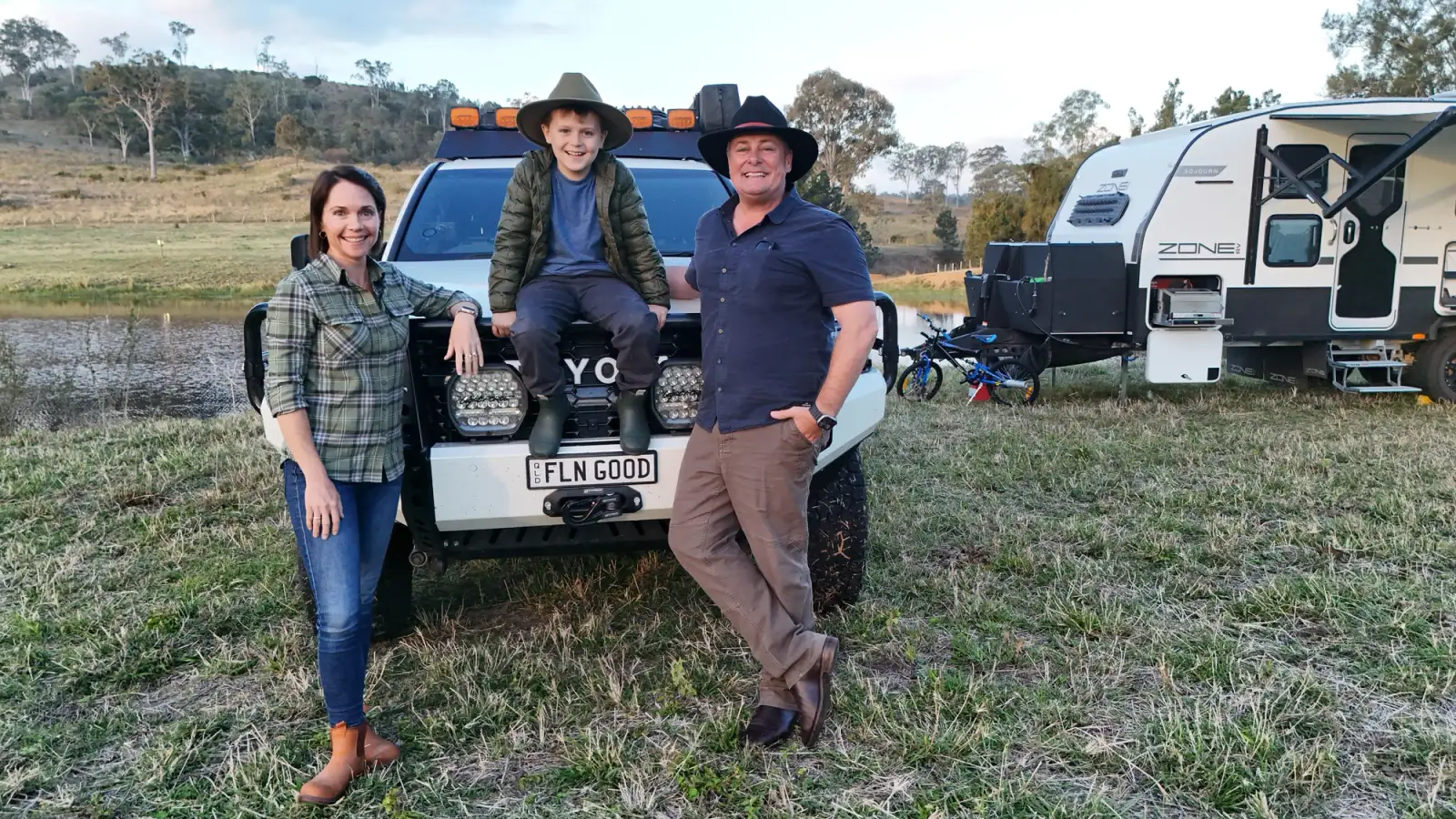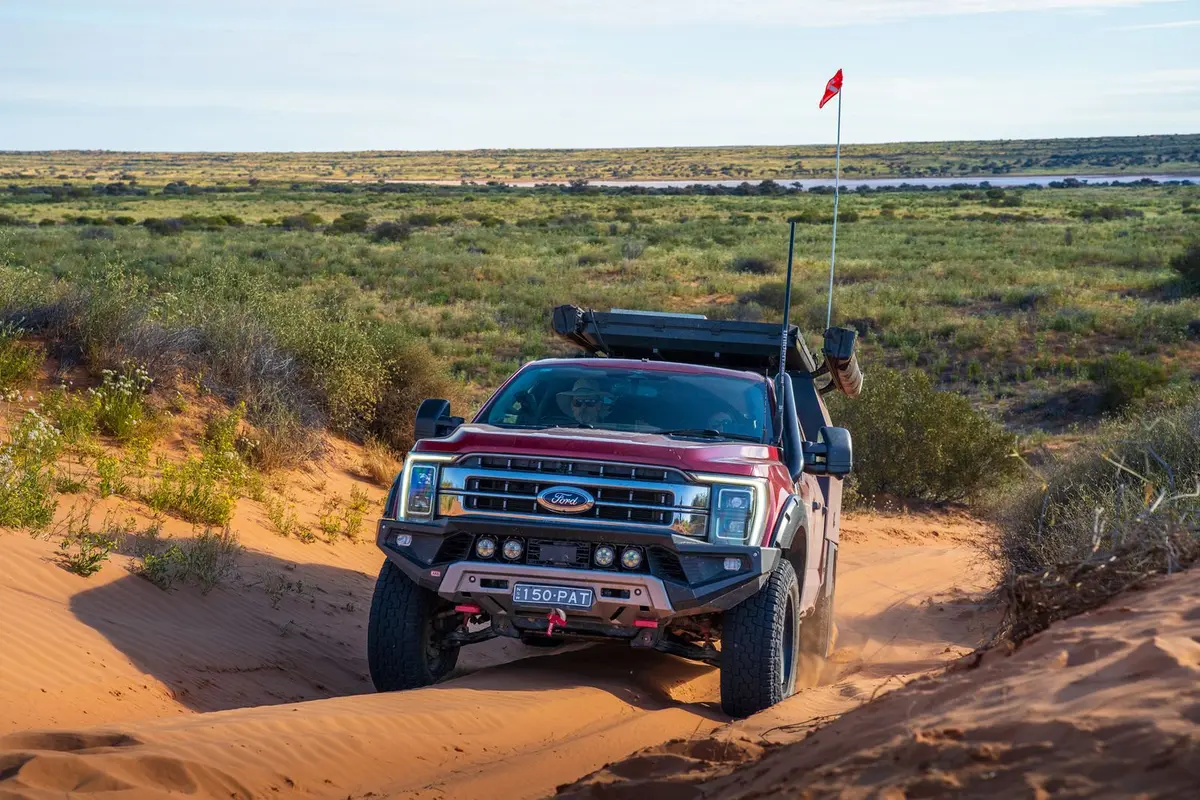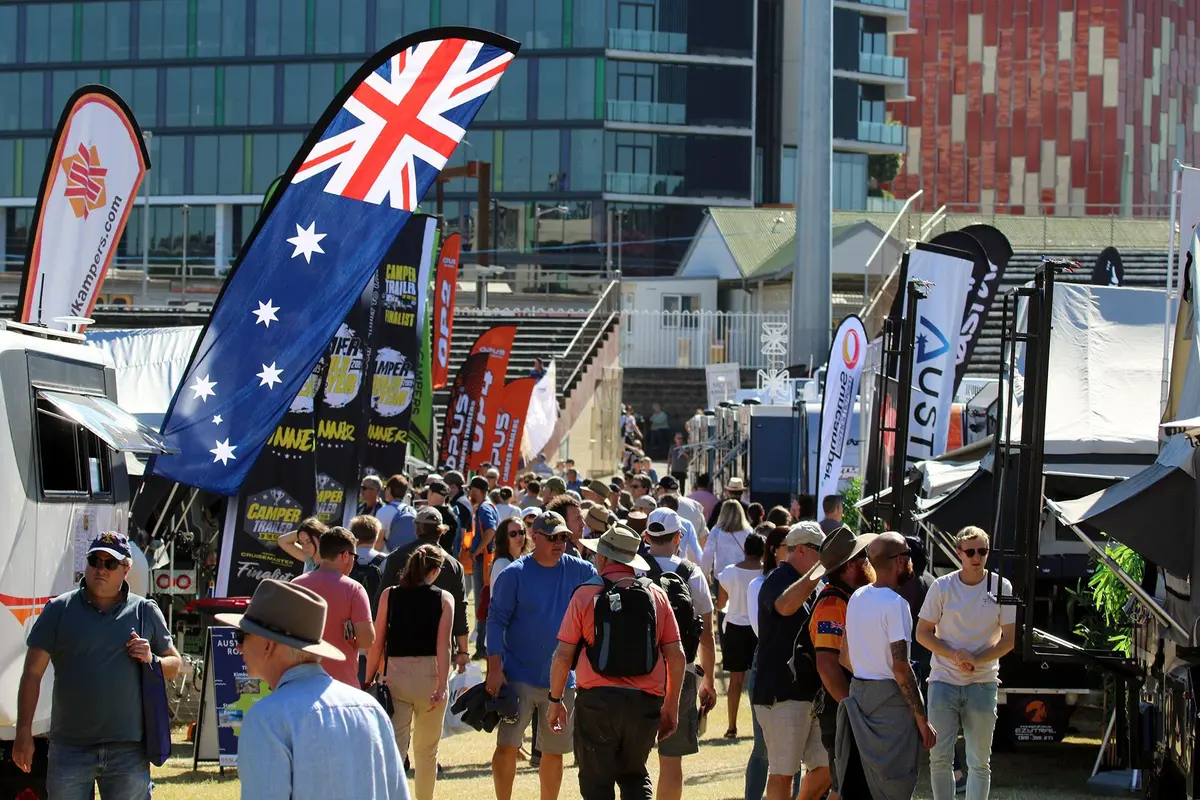When you think about packing for an off-road or remote adventure, your mind probably jumps straight to recovery gear, water, tools, and maybe a sneaky stash of snacks. But one of the most underrated pieces of kit in your entire vehicle might just be sitting quietly in front of the passenger seat - your glovebox.
We reckon it’s the unsung hero of preparedness. It’s where you keep the small but mighty essentials that can make a massive difference when things don’t go to plan. So, here’s a look inside Scout’s glovebox - our LandCruiser 300 Series touring rig - and why what we keep in there could be a real game changer on the road.
1. Paperwork That Proves You Belong on the Road
Let’s start with the basics - your vehicle registration, insurance details, and roadside assistance documents. Paper doesn’t rely on Wi-Fi, battery life, or data coverage, and in our experience, that can be worth its weight in gold.
Sure, you can usually find this stuff online. But out on the Oodnadatta Track, deep in the Red Centre, or somewhere beyond the reach of a single bar of reception, “I’ll just log into my account” isn’t much help.
We always keep physical copies of:
- Vehicle registration papers
- Insurance certificate of currency (from Club 4x4, of course)
- Roadside assistance policy and contact details
Having these on hand is invaluable if you’re ever pulled over, involved in an incident, or need to contact your insurer or breakdown service from a remote area.
2. Our Emergency Contact Sheet - Everything in One Place
This is one we designed ourselves after years on the road, and it’s something we reckon every traveller should have.
Our Emergency Contact List documentation includes:
- Family and next-of-kin contact numbers
- Emergency services and roadside assistance details
- Medical information such as allergies, conditions and medications
- Vehicle make, model, registration and VIN
- Insurance policy numbers and claim contact numbers
- Mechanic details and servicing contact
- Local emergency numbers (especially important when travelling interstate or remotely)
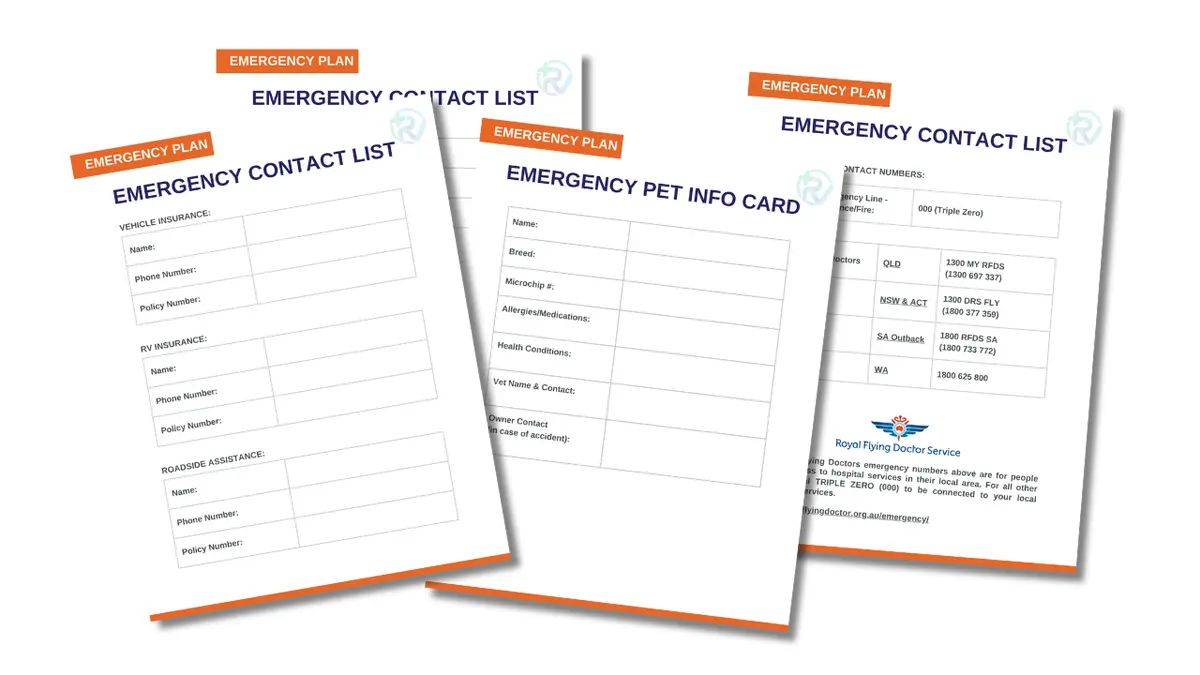
a set of four papers with important details on them
When the unexpected happens - whether it’s a medical issue, breakdown, or accident - having that information at your fingertips means you (or someone helping you) can act fast without rummaging through a dozen apps or old emails.
In an emergency, seconds matter. Having it all printed and accessible could be the difference between chaos and calm.
3. First Aid Action Plans and Wildlife ID Charts
Because we travel Australia full-time, our glovebox isn’t just for paperwork -it’s also home to a few laminated lifesavers.
We keep snake and spider identification charts and our First Aid Action Plan cheat sheet, both designed to help us respond quickly and correctly to bites, stings, or other medical emergencies.
When you’re hours away from the nearest hospital, knowing what you’re dealing with, and what to do in the meantime, is critical.
It’s amazing how even seasoned travellers can freeze up in the heat of the moment, so having a clear visual guide nearby helps keep everyone calm and confident.
We also keep this information digitally on our phones, but again, battery life, damage, or lack of service can render tech useless. Old-school paper wins again.
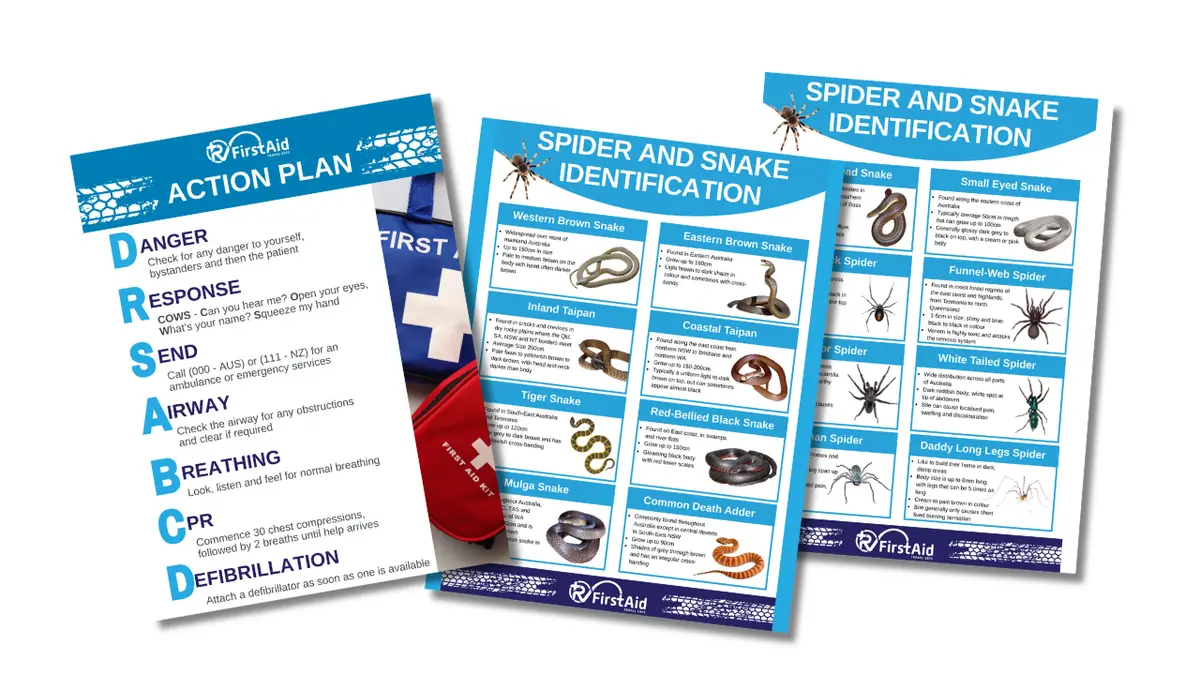
first aid and wildlife ID charts
4. Know Your Rig - Vehicle Manual and Servicing Info
You’d be surprised how many people don’t carry their vehicle manual anymore. Sure, you can find it online, but not when you’re unplugged.
We always keep:
- The LandCruiser owner’s manual
- Service and warranty booklet
- A folder with receipts, manuals, and spec sheets for any aftermarket mods - like suspension upgrades, power management systems, or communication gear.
Why? Because when you’re diagnosing an issue, talking to a mechanic, or troubleshooting a fault code, this information can make life a lot easier. It also helps roadside assist or local mechanics understand your setup faster if something needs fixing on the spot.
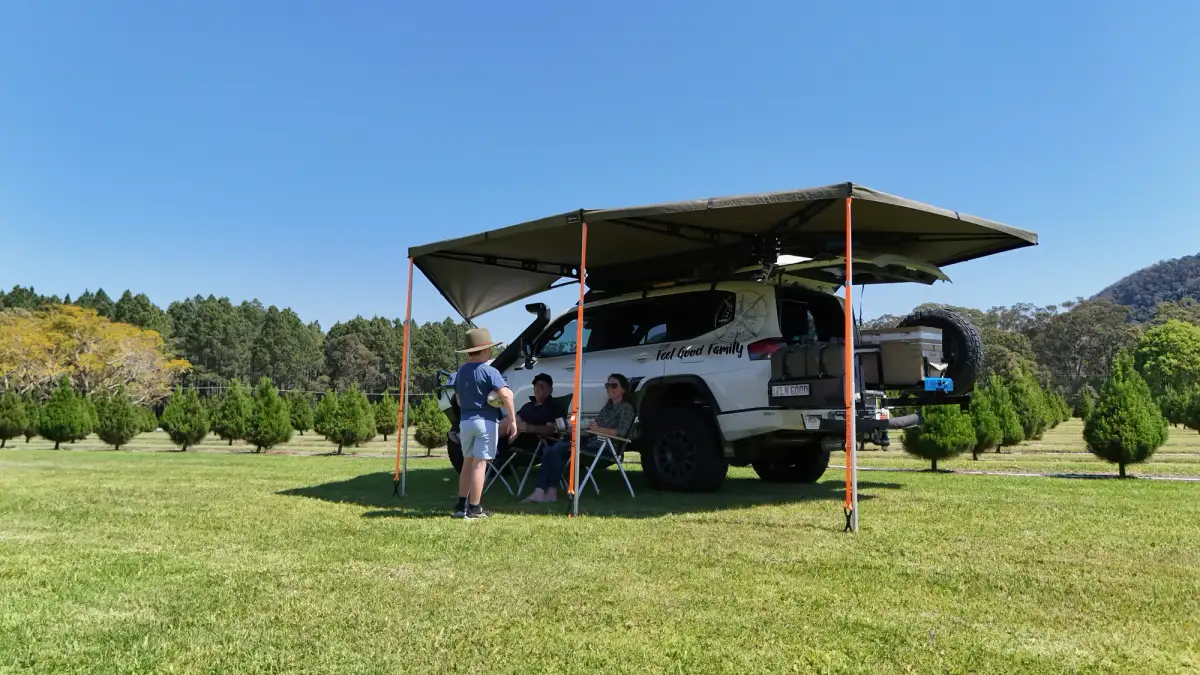
family sitting under an awning attached to a 4wd
5. The Hidden Bonus: Peace of Mind
It might not be flashy or high-tech, but knowing that everything you could possibly need in an emergency is right there, neatly organised, waterproofed, and within reach, brings an incredible sense of security.
When you’re hundreds of kilometres from help, preparedness isn’t paranoia -it’s empowerment.
You can’t predict every situation, but you can stack the odds in your favour. A glovebox stocked with the right information turns panic into problem-solving and makes sure that if the worst happens, you’re ready.
6. A Quick Glovebox Checklist
Here’s our go-to list for every off-road and remote trip:
✅ Vehicle registration
✅ Insurance policy (Club 4x4 Certificate of Insurance)
✅ Roadside assistance details
✅ Emergency contact and medical info sheet
✅ Snake and spider ID charts
✅ First Aid Action Plan
✅ Vehicle manual and servicing booklet
✅ Mod documentation (suspension, electrics, etc.)
✅ A pen, small notepad, and spare torch
Bonus tip: keep everything laminated or in a waterproof pouch - dust and moisture have a way of sneaking into even the cleanest rigs!
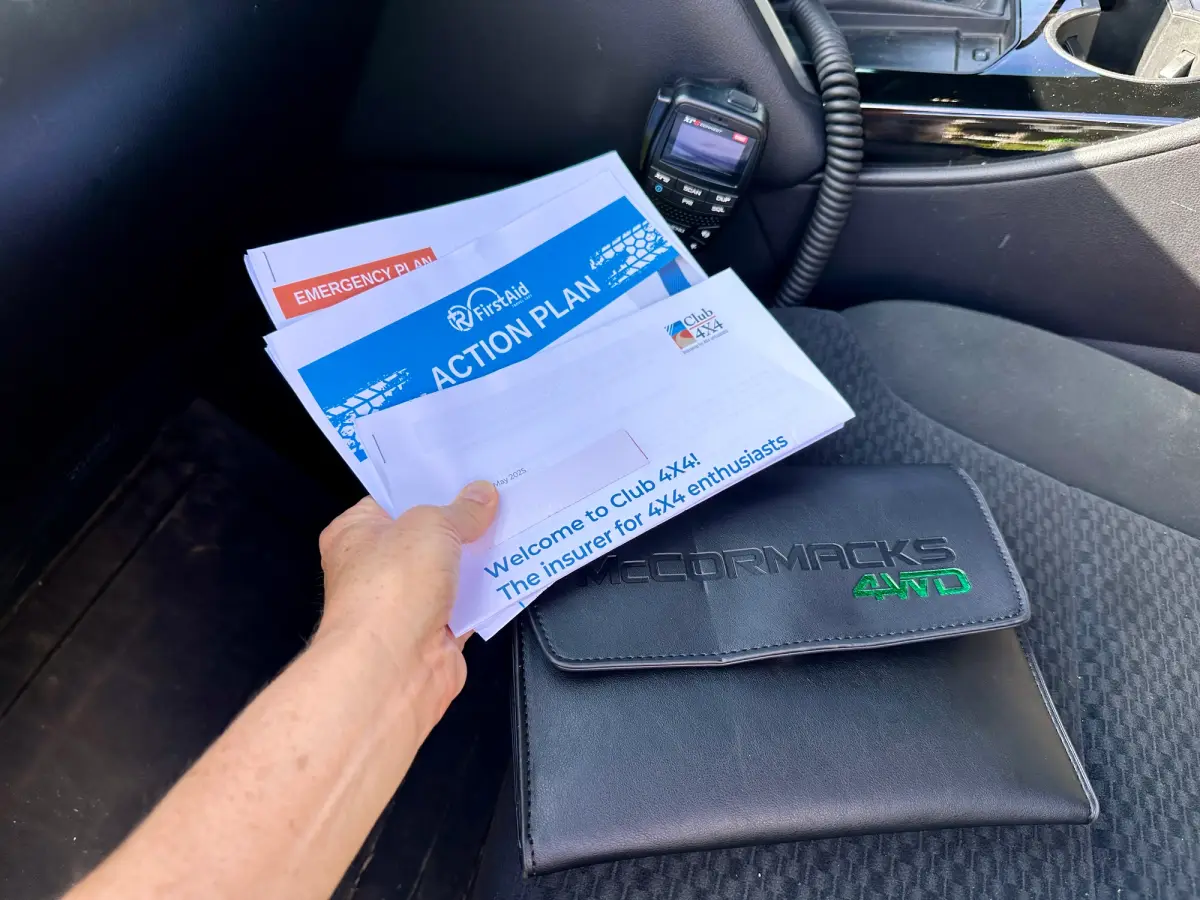
someone holding documents inside a car
7. But What If Your Vehicle Gets Stolen?
It’s a fair question - if you’re keeping sensitive personal details like insurance numbers and emergency contacts in your glovebox, what happens if the whole vehicle is taken?
The key is balance- preparedness without overexposure. Here’s how we manage it:
- Limit personal identifiers. Our emergency contact sheet doesn’t include things like our full home address or dates of birth - just first names, phone numbers, and essential medical info for emergencies.
- Use a removable pouch. We keep our documents in a small waterproof wallet that can easily be taken with us if we leave the vehicle unattended for long periods.
- Keep digital backups. Every document in our glovebox also lives in a secure, encrypted cloud folder - accessible offline through our phones. So even if something were to happen to the vehicle, we’d still have access to everything.
- Avoid unnecessary extras. Don’t store banking info, passwords, or personal IDs like passports. Keep it strictly travel and safety related.
Think of your glovebox kit as a grab-and-go safety pack - practical, not personal. The goal is to have what you need when it matters, without oversharing your life story.
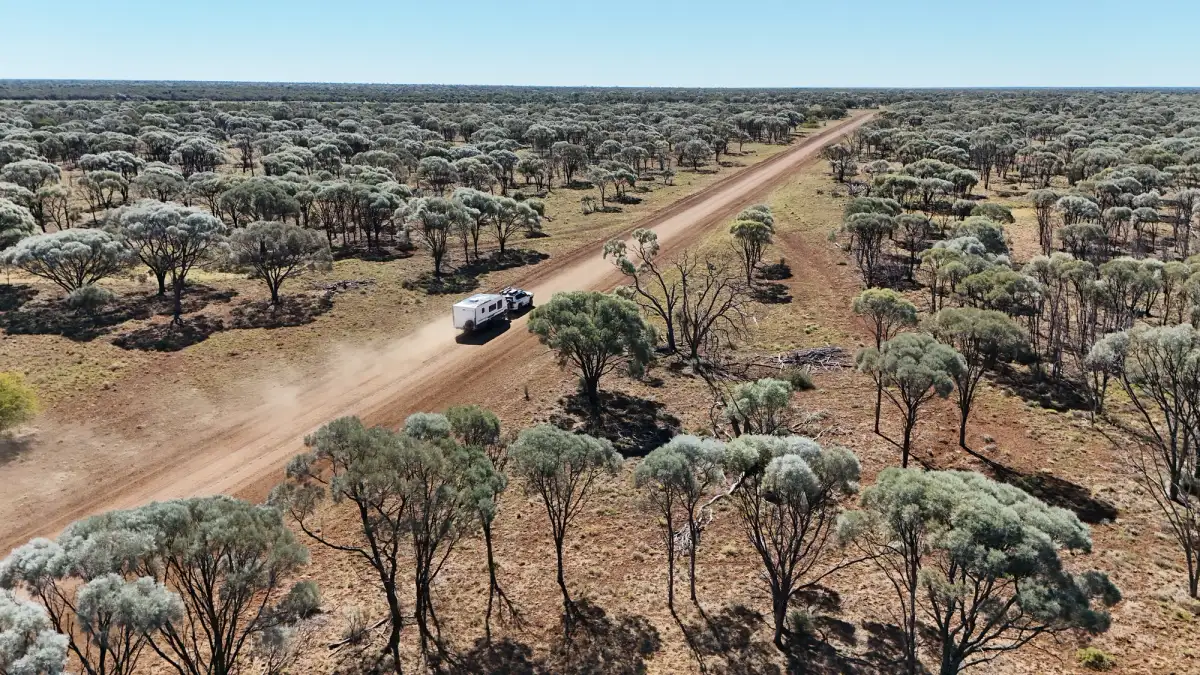
a vehicle driving through a dusty road with sparse trees
Final Thoughts
Adventure doesn’t always go to plan. That’s part of what makes it adventure - but it’s also why preparation matters.
Your glovebox might seem like a small detail, but it’s your command centre when things go sideways. It’s not about being pessimistic; it’s about being proactive.
Because the best travellers aren’t just the ones who see the most places -they’re the ones who make it home safely to tell the story.
Glovebox ready for the road?
Make sure your insurance is too


